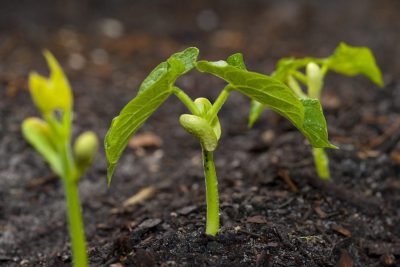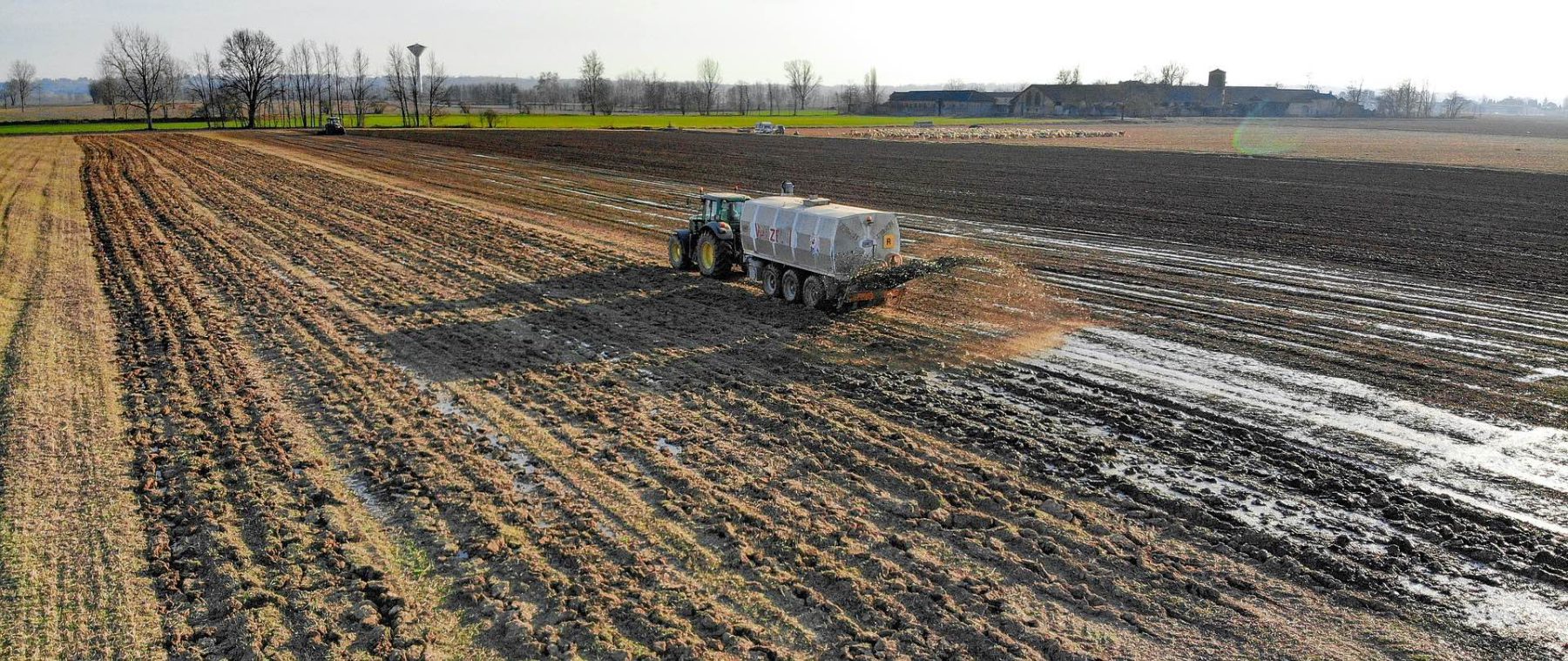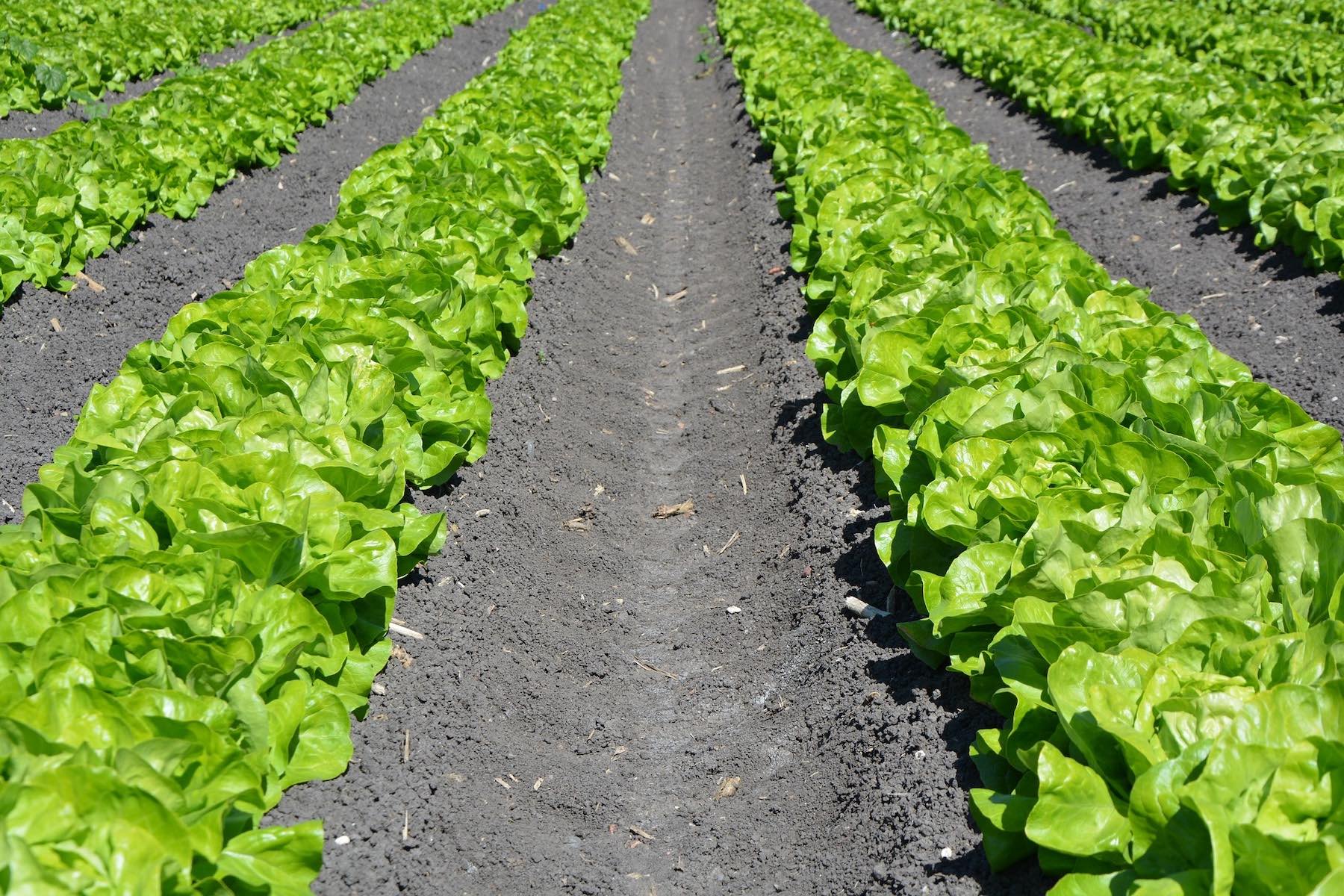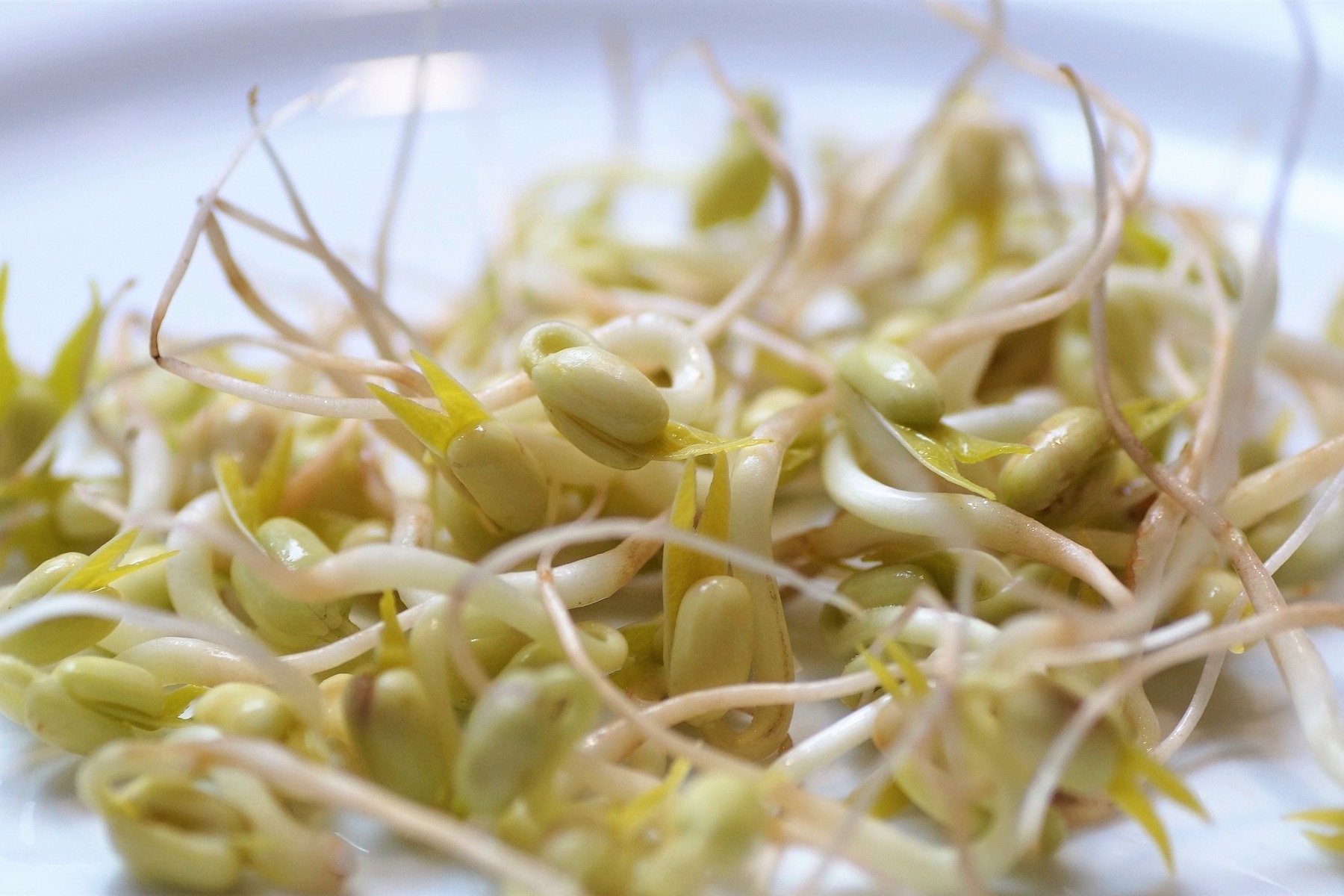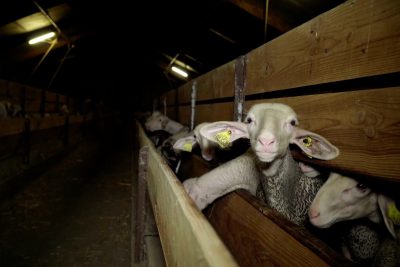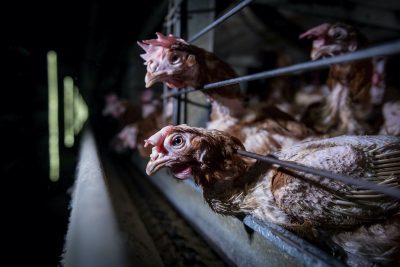Some people argue that fruits and vegetables are no safer than animal products because you can still ingest foodborne pathogens from them and get sick as a result. But in most cases, the pathogens actually come from contamination by animal products. That’s why ending the farming and consumption of animals would go a very long way to ending food poisoning from plant foods, as well as from meat, milk and eggs.
Cross-contamination
To date, foods of animal origin have been the main source of documented and reported outbreaks of foodborne disease, and 90 percent of the outbreaks in the European Union between 2007 and 2011 were associated with foods of animal origin.
According to Colorado State University, although fresh fruits and vegetables were once thought to be relatively free of disease-producing pathogens, more recently there has been an increase in illnesses connected to them. The researchers set out how plants most commonly become contaminated with sickness-inducing bugs:
-
-
- through raw or improperly composted animal manure
- through irrigation water containing untreated sewage or animal manure, and contaminated wash water
- through contact with animals and unpasteurized animal products
-
In other words, the key contamination of vegetables comes from farmed animal waste and meat, milk and eggs.
In the Field
Around 80 billion animals are farmed each year, and all of them are pooping. They produce so much waste that we don’t know what to do with it. It is spread on the land in vast quantities, and the remainder is stored in ‘lagoons’ while we try to come up with a solution. But all too often it leaks out of these storage areas, (and is often deliberately discharged, too), which means even more untreated waste gets onto the land and into waterways. The disease-causing pathogens contained in this waste contaminate soil and water.
Root crops and leafy vegetables are most at risk of E.coli infection from the manure that is applied to the soil, as this particular bug is most prevalent in ruminants, especially cows. (The animals themselves don’t get sick but they carry and shed the bacteria in their feces.)
Researchers think it unlikely that pathogens in the soil get into the vegetables through their roots. It is much more likely that these contaminants get onto the surface of the plants and into their stomata – the tiny pore-like openings on their leaves. This is what happened when an E.coli outbreak was traced to a Californian spinach farm – the most likely cause was said to be animal manure splashed onto the leaf surfaces.
Leaving the Field
In another worrying case, an outbreak traced to a Californian lettuce farm was found to have been caused by farm workers washing the vegetables in untreated water taken from wells near cow pastures. They had been told not to drink the water themselves but apparently no one considered it would be a problem to wash salad vegetables in it.
Practices such as trimming and coring of lettuces in the field can also transfer pathogens from the manure-soaked soil to plants, and then from plant to plant on a contaminated knife. And, of course, poor hygiene by workers can transmit pathogens to vegetables and fruits, too.
Consumer Contamination
Contamination can also come from dirty processing equipment and unhygienic food preparation practices. Research shows that most outbreaks connected to fruits and vegetables are due to hygiene lapses by restaurants and catering facilities.
Cross contamination is common when there are animal products in the kitchen. In a 2019 study, 26 percent of participants that washed raw poultry transferred bacteria from the meat to their ready-to-eat lettuce.
Chopping vegetables on a board where meat or dairy products have been, or allowing fluids from these to drop onto fresh produce in cold stores are also key risks. And salad vegetables are more at risk than other plant products because they are usually eaten raw, whereas cooking destroys most pathogens.
A Vegan World Is Safer
The vast quantities of urine and feces produced by those billions of farmed animals is a significant health risk in terms of food contamination (as well as being an environmental catastrophe).
But even the riskiest of all vegetables, and the one with the worst reputation, is largely innocent. Sprouts may provide the perfect conditions for bacterial growth but their contamination is, again, often due to coming into contact with farmed animal manure.
And when that same infected manure splashes over frightened animals inside slaughterhouses, it gets onto their bodies, then onto the meat, and from there it provides another route to harm those who eat or handle these products, and from there to contaminate vegetables inside kitchens or factories.
So, while there are multiple routes for foodborne pathogens to contaminate fruits and vegetables, if you trace them back, you’ll usually find the real problem lies with farmed animals and their manure, or their meat, milk or eggs.
